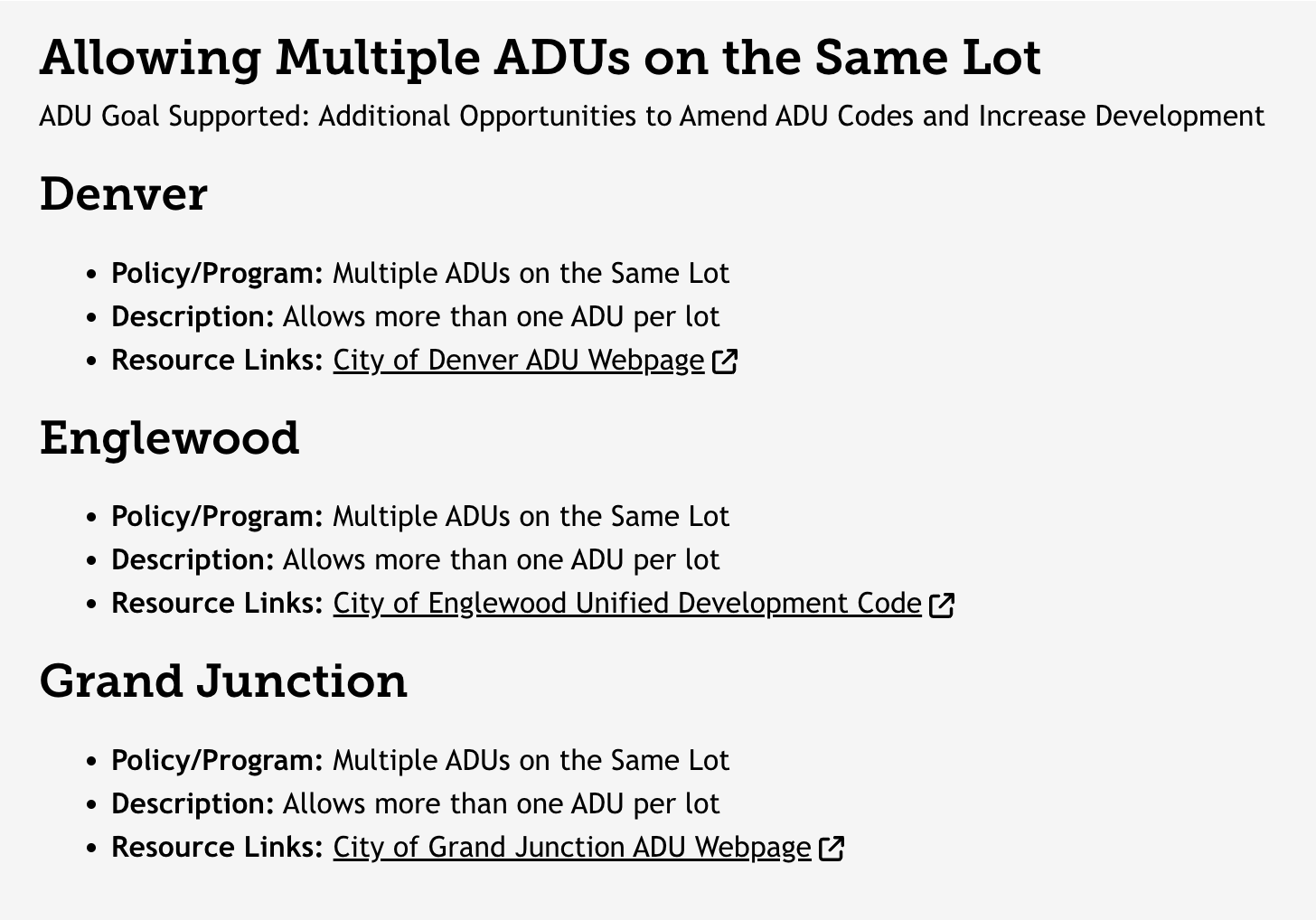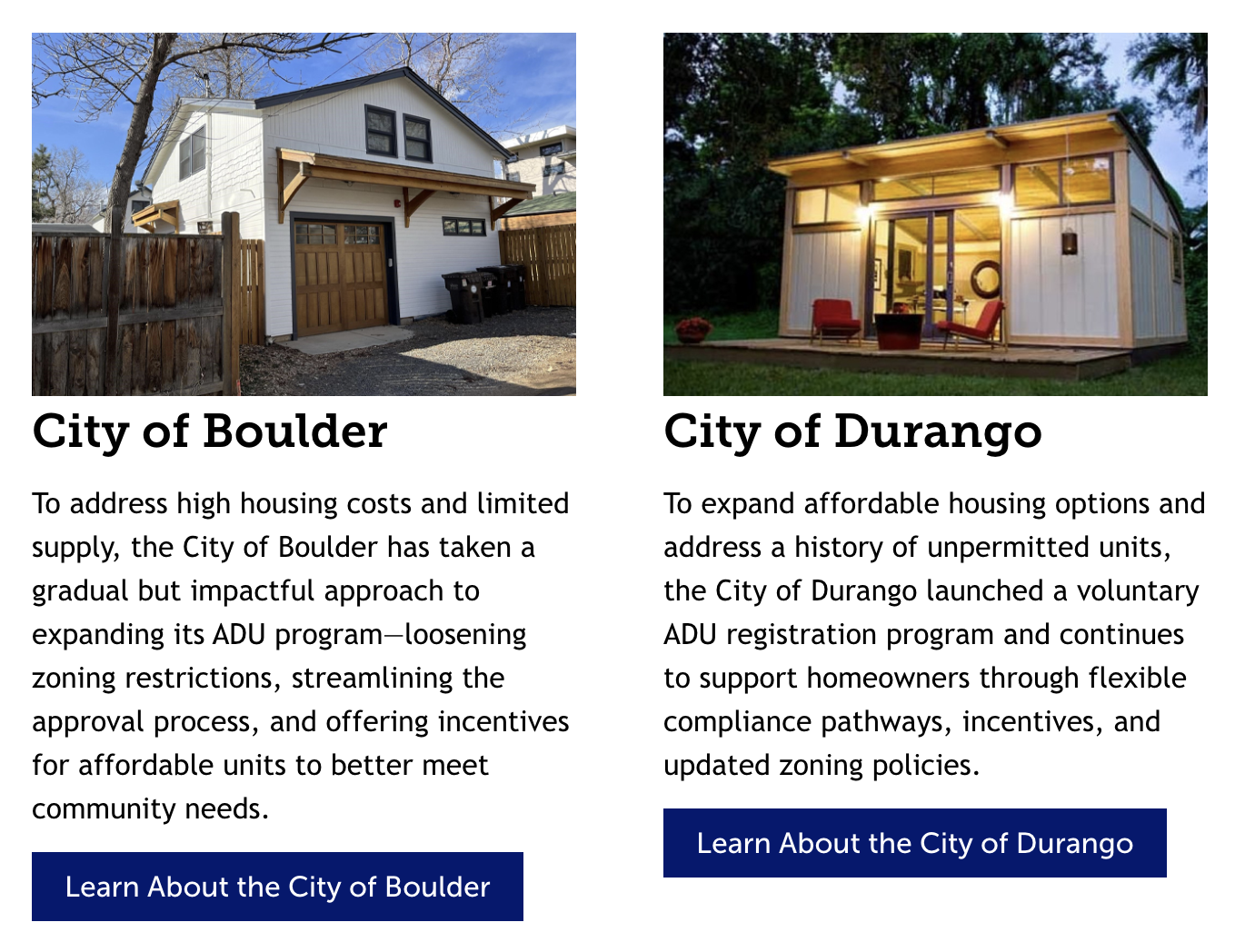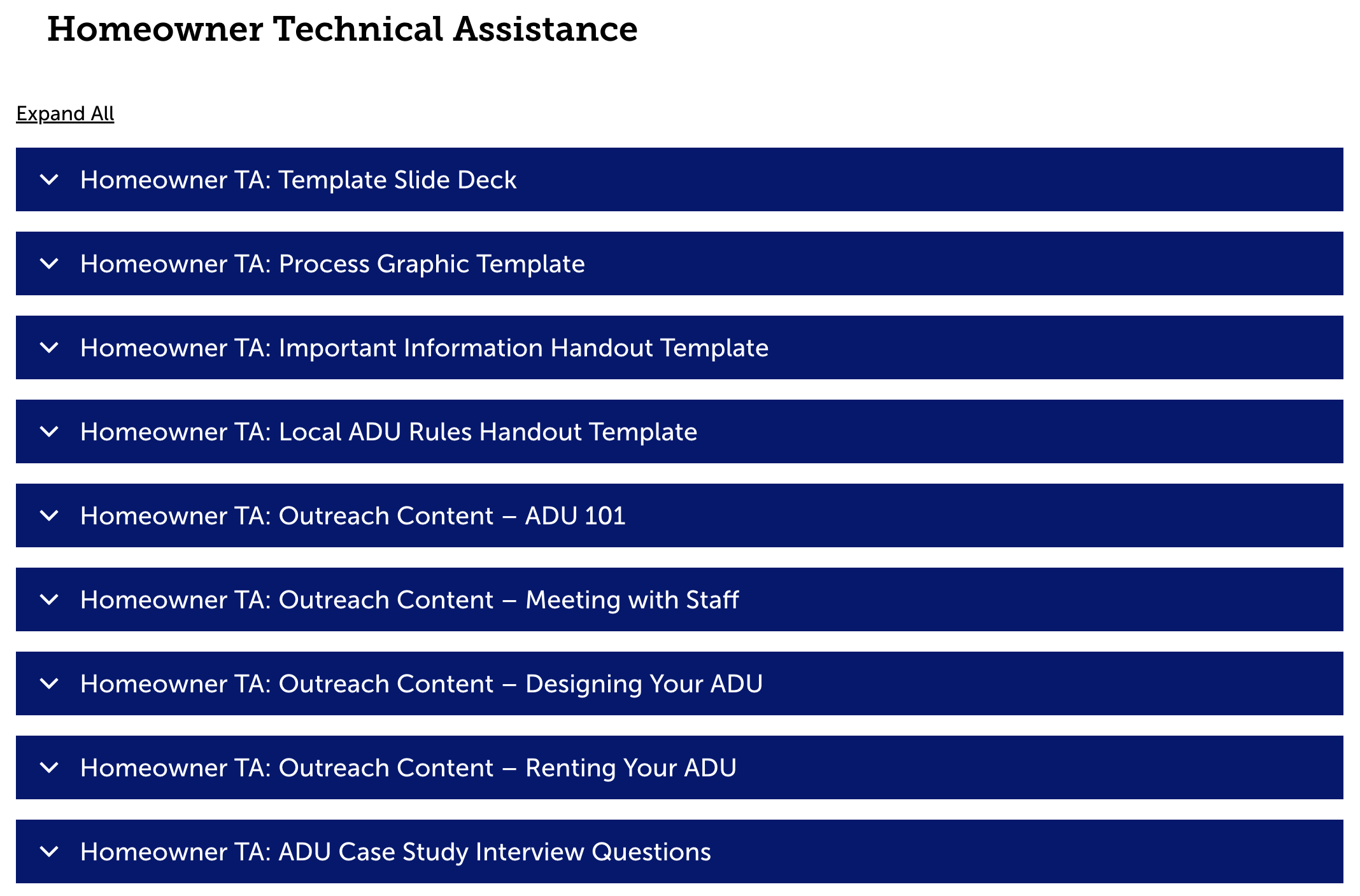Colorado ADU Technical Assistance
In May 2024, the state of Colorado passed House Bill 24-1152 to help encourage the development of accessory dwelling units (ADUs) across the state. The bill went into effect June 30, 2025, and requires many jurisdictions in the state to meet new requirements in their ADU code, including removing restrictive design and dimension rules. The bill also created an “ADU Supportive Jurisdiction” designation for jurisdictions, which comes along with eligibility for ADU-related funding and other technical support. In order to be considered an “ADU Supportive Jurisdiction,” the jurisdiction must adopt of at least one of nine ADU-supportive programs or policies listed in the bill, or another ADU-supportive program or policy of the jurisdiction’s choice.
CPC was hired by Colorado’s Department of Local Affairs (DOLA) to help with implementation of this new ADU bill, as part of an expert team providing technical assistance for this and other bills passed in the same legislative cycle.
Our scope of work included:
Creation of the compliance reporting framework for jurisdictions: We drafted the content and functionality for a web-based form that local staff use to demonstrate compliance with all elements of the law and provide useful information to the state. This work included strategic consideration of efficient, streamlined reporting for both local staff submitting the information and for the DOLA team conducting compliance review. We also used our knowledge of ADU laws and policy development to consult DOLA on what should be reported to show sufficient adoption of the ADU-supportive strategies listed in the bill and what should be included if a jurisdiction submits information about another strategy of their choice.
ADU Toolkit Creation: To support the new ADU Supportive Jurisdiction designation, our team created a comprehensive online toolkit about ADU-supportive policies and programs, including detailed guides to the nine listed in the bill as well as a “menu” of many other options for policies and programs that could meet the intent of the law.
Strategy guidance: For each of the listed strategies (plus a small number of other high-priority options), we produced a guide including an overview of the strategy, a list of strategy benefits, step-by-step guidance on designing the policy or program, potential pitfalls and responses, examples of mostly CO jurisdictions that have already adopted the strategy, and complementary policies and programs that work well together. Many of these details were included for the other strategies on the “menu,” as well. All strategies were organized in goal areas including: affordability, homeowner support, streamlined approval, code amendment, and climate resiliency.
Case studies: We conducted interviews with a variety of jurisdictions and agencies across the state to create five case studies about local governments engaged in ADU-supportive strategies and notes on their program or policy design, implementation hurdles, and overall impact.
Templates and tools: We provided nearly 20 templates, guides, and samples of resources to support the adoption of many of the strategies listed in the toolkit, including sample public information, checklists, and more.
Throughout this process, we assisted DOLA staff with nuanced issues of legislative interpretation and how local jurisdictions might interpret particular topics, with an eye to creating reporting questions that could help identify loopholes and emphasize the intent of the law. All of our products are available to Colorado jurisdictions to support compliance reporting and applying for ADU Supportive Jurisdiction status.




